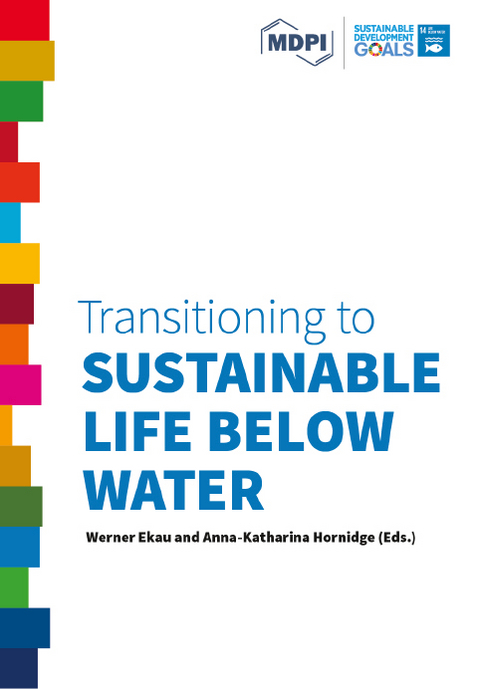
Transitioning to Sustainable Life below Water
MDPI (Verlag)
978-3-03897-876-3 (ISBN)
- Keine Verlagsinformationen verfügbar
- Artikel merken
Following a series of summits and conventions that prompted the United Nations in recent decades, Rio de Janeiro in 1992, Johannesburg in 2002 and Rio+20 in 2012, all of which were rather land-based, the Sustainable Development Goals 2015 set a new landmark in which the ocean, too, was finally acknowledged as significant to global development. The Ocean Conference in New York in June 2017 led the international community to formulate clear goals for the development of the ocean. The volume Transitioning to Sustainable Life below Water will address critical issues in ocean use and reflect against goals and targets of SDG 14 and other relevant SDGs.
Transitioning to Sustainable Life below Water is part of MDPI's new Open Access book series Transitioning to Sustainability. With this series, MDPI pursues environmentally and socially relevant research which contributes to efforts toward a sustainable world. Transitioning to Sustainability aims to add to the conversation about regional and global sustainable development according to the 17 SDGs. The book series is intended to reach beyond disciplinary, even academic boundaries.
Dr. Werner Ekau is Director of the Operational Centre Germany of the International Ocean Institute (IOI). From 2004 to 2017 he was a member and chair of the Committee of Directors. He is a fisheries biologist trained at Bochum, Hamburg and Kiel University and has worked in Antarctica, Argentina, and the Azores. Since 1991 his work has revolved around fish biology and ecology in tropical ecosystems and throughout the 1990s he was a coordinator for the bilateral co-operation in Marine Research between Brazil and Germany. His research interests lie in the wider field of “Adaptations of different life stages of fish to their environment and the consequences of climate change”. This includes activities in growth and population dynamics; migration pattern of fish in coastal environments; ichthyoplankton; fisheries biology; ecology; and ecosystem responses to climate change. An important topic is his work is the ecosystem approach to fisheries management, by which he engaged for many years in the Large Marine Ecosystem community as well as the stimulation and enforcement of international cooperation and networking in marine science and governance. He is a member of the Group of Experts on Capacity Development of the Intergovernmental Oceanographic Commission of UNESCO.
Prof. Dr. Anna-Katharina Hornidge is Director of the German Development Institute (Deutsches Institut für Entwicklungspolitik or DIE) and Professor for Global Sustainable Development at the University of Bonn. In her research, Ms. Hornidge works on knowledges & innovation development for development, as well as questions of natural resources governance in agriculture and fisheries in Asia and Africa. Ms. Hornidge serves as expert advisor at national, EU and UN level: as Member of the German Advisory Council on Global Change of the German Government (WBGU), Co-Chair (with Gesine Schwan) of SDSN Germany, and as part of the executive council of the German UNESCO-Commission
| Erscheinungsdatum | 12.05.2022 |
|---|---|
| Verlagsort | Basel |
| Sprache | englisch |
| Themenwelt | Sachbuch/Ratgeber ► Geschichte / Politik ► Politik / Gesellschaft |
| Naturwissenschaften ► Biologie ► Allgemeines / Lexika | |
| Naturwissenschaften ► Biologie ► Ökologie / Naturschutz | |
| Technik ► Umwelttechnik / Biotechnologie | |
| Schlagworte | biodiversity • Life below water • Oceans • sustainability |
| ISBN-10 | 3-03897-876-0 / 3038978760 |
| ISBN-13 | 978-3-03897-876-3 / 9783038978763 |
| Zustand | Neuware |
| Haben Sie eine Frage zum Produkt? |
aus dem Bereich


